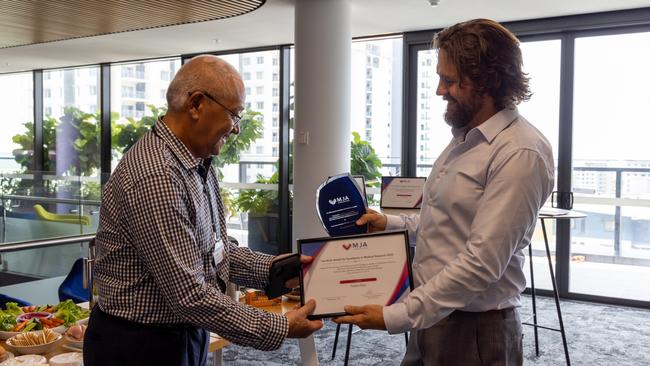Aboriginal Territorians’ life expectancy 15 years behind non-Indigenous peers
An award-winning study has revealed the progress Territorians have made towards closing the life expectancy gap and mapped the long route ahead.

News
Don't miss out on the headlines from News. Followed categories will be added to My News.
Award-winning research has revealed the life-expectancy gap between Indigenous and non-Indigenous Territorians is slowly closing, but there is still a long way to go.
NT Health Statistics and Informatics Senior Director Paul Burgess said it would take another 60 years to close the life expectancy gap if the current rate of progress continued.
Dr Burgess – alongside NT health clinicians Dr Yuejen Zhao, Ms Shu Qin Li and Melbourne University professor Dr Tom Wilson – found in a 2022 study that the life expectancy at birth for Indigenous men had risen from 56.6 years to 65.6 years between 1999 and 2018.
The life expectancy of Indigenous women rose from 64.8 years to 69.7 years in the same period.
But in 2018 non-Indigenous Territorians had a life expectancy of 81 years for men and 85.1 years for women – a difference of 15.4 years each.

Dr Burgess said listening to feedback from Aboriginal communities would be critical to finally closing the life expectancy gap in the NT.
“Clearly, we can and should do better than this,” he said.
“We have shown that life expectancy gains are achievable and that with further investment across health and the social determinants, we could expect to fast-track further improvements.”
Dr Burgess said “real change” was “absolutely possible” and hoped his team’s research would instil perseverance among frontline workers and stimulate further investment in Closing The Gap efforts.
“While our epidemiological research has not contributed directly to health gains, we have validated the efforts of the many Aboriginal and non-Aboriginal people that are working to improve outcomes every day across health, education, justice, housing and a myriad of non-government organisations,” he said.
“The true recognition for this work belongs to the many Aboriginal and non-Aboriginal people who have volunteered or worked tirelessly over the past 20 years to improve health outcomes across the NT.”
The team’s research as part of an NT burden of disease study every five years received the 2023 Medical Journal of Australia Award for Excellence in Medical Research.
Chief and Health Minister Natasha Fyles congratulated the team for their research’s recognition.
“We have some Australia’s best clinicians in the Territory who are focused, just like the Territory government, on making health outcomes for all Territorians better,” she said.
“This research shows us that we need to continue having a co-ordinated government response to make sure Territorians are living fuller, healthier lives.”




